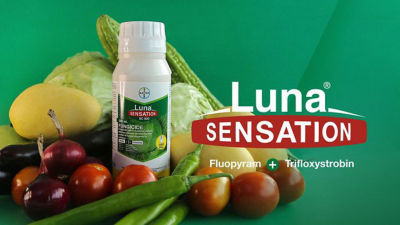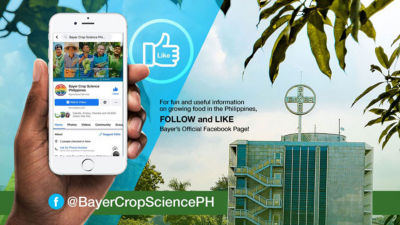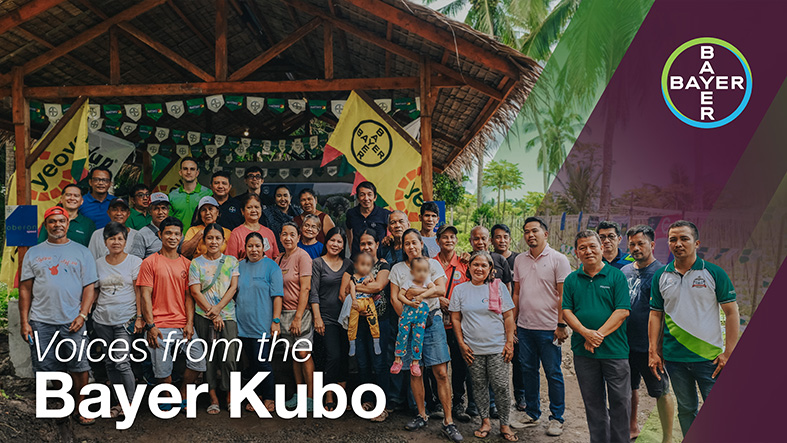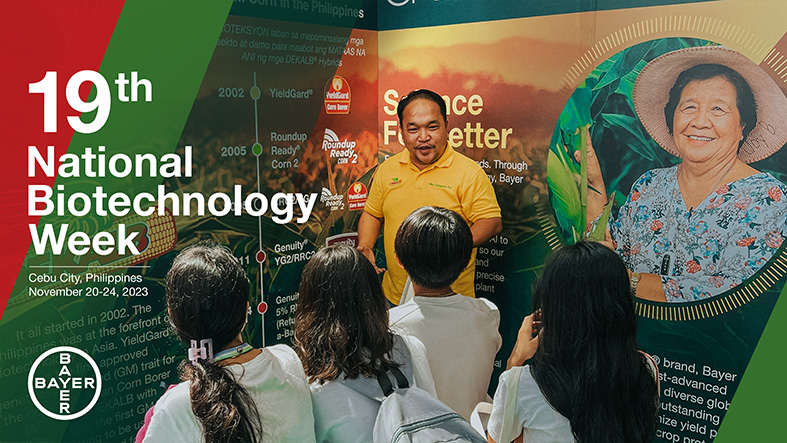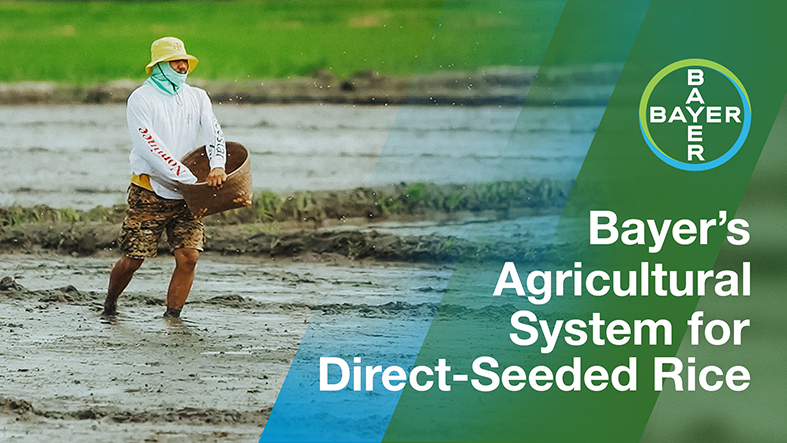
The Southeast Asian Regional for Graduate Study and Research in Agriculture (SEARCA) together with Bayer Crop Science in the Philippines held the “20 Years and Onward: Advancing the Future of Philippine Yellow Corn” Forum, marking the two decades of use of Bt corn, or more locally known as yellow corn, after its first commercial planting in 2003. The event was held on 8 February 2024 at the Makati Diamond Residences and online via Zoom.
More than 160 attendees from public and private sectors attended the forum onsite and online, including from the academe, industry, business chambers, farmer groups, nongovernmental organizations, and the government. The forum looked back at key enabling policies as well as the situation of yellow corn across the value chain.
Director Gerald Glenn Panganiban of the Department of Agriculture-Bureau of Plant Industry (DA-BPI) highlighted in his opening message that the Philippines was among the first countries in Asia to adopt yellow corn, a genetically modified (GM) crop, and implement a regulatory framework on genetically engineered crops.
Science-based policy as a solid ground
In the first panel examining the 20-year journey of yellow corn, Dr. Abraham Manalo, Executive Director of the Biotechnology Coalition of the Philippines, underlined the crucial role of policy in promoting the technology and supporting the growth of yellow corn over the years. “Regulations should be stringent, science-based, but streamlined,” Dr. Manalo stated. “Yellow corn stands on solid ground today because of our regulations. But our continued battle cry is for safe and responsible use of modern biotechnology,” he added.
Dr. Candido Damo of the DA-National Corn Program shared that about 90 percent of yellow corn in the country is GM, noting that despite decreasing planting hectarage, yellow corn has significantly increased its yield over the years as farmers continued adopting the crop.
Mr. Ramon Abadilla, Executive Director of CropLife Philippines, added that the private sector’s role is to ensure the quality and integrity of GM corn seeds by practicing strong stewardship, especially on farming, insect-resistance management, educating farmers on the proper use of their products, and gathering feedback from the market. He also suggested that expanding the yellow corn value chain is an opportunity for farmers to have higher-value crops and convert corn not only for feeds but also for industry inputs such as ethanol, hydrocarbon, and bioplastics.
Need for continued stewardship and the regenerative future of yellow corn
Dr. Gabriel Romero, Executive Director of the Philippine Seed Industry Association, emphasized in a panel that stewardship of seeds is critical in maintaining the integrity of their environmental traits and allowing farmers to continually access high-quality planting materials. Dr. Analiza Ramirez of the Institute of Weed Science, Entomology and Plant Pathology of the University of the Philippines Los Baños added that stewardship should also be a whole-of-nation approach to address the concerns on crop protection use. Farmers are accountable for their crops; the government provides funding and policy support for the technology; and the academe and the industry partner to produce science-based innovations.
Meanwhile, Mr. Edwin Mapanao, President of the Philippine Association of Feed Millers, stressed strengthening the distribution network through consolidators and clustering so farmers can be easily linked to the industry. Lastly, Mr. Iiinas Lao, Country Commercial Lead from Bayer Crop Science, said that the future of corn farming is regenerative agriculture, which aims to increase productivity and income while renewing the environment. Innovations such as Bayer’s Preceon Smart Corn System, which includes short-stature corn and digital farm insights, and modern breeding techniques will enable this future.
In his fireside chat, Mr. Adriel Dave “Farmer AD” Alvarez, a farmer-leader and biotech advocate from Cebu, said: “Along with smallholder farmers, an effective agriculture development agenda of mid-and upper-strata farmers should also be prioritized”. He also called for increased support for extension workers who will assist and train farmers and consolidators not only in farming and production but more on agribusiness, market, and linkages development.
Center Director of SEARCA, Dr. Glenn Gregorio, reaffirmed SEARCA’s support for the industry in his closing message. “The Center remains steadfastly committed to convening knowledge creation and utilization activities that guide the development of policy recommendations to sustain and advance the gains of agricultural innovations like yellow corn in an increasingly complex environment,” he stated. “The next chapter for the Philippine corn industry will need collective action, a multistakeholder approach to expand what we have experienced in the past twenty years,” Dr. Gregorio added.
As a key partner-convenor of the event, Mr. Lao, said: “More than two decades ago, Bayer was among the first to bring to Filipino farmers the benefits of biotech corn, supporting growers to maximize their yield and protect their crops using biotechnology. Through this forum, we’re pleased to be part of the conversation and action on how to advance further the yellow corn industry.”
The event was co-organized with the Philippine Seed Industry Association, UPLB Weed Science Society of the Philippines, Biotechnology Coalition of the Philippines, National Corn Program, CropLife Asia and CropLife Philippines, Philippine Feed Millers Association, and Philippines Partnership for Sustainable Agriculture.
///////////////////////////////////////////////////////////////////////////////////////////////////////////////////////////////////////////////////////////////////////////////////////////////////
Read more stories here:
Connect with us! Follow the Bayer CropScience Philippines and DEKALB Philippines Facebook pages. Subscribe to our official Youtube channel, Bayer AgricademyTV.


